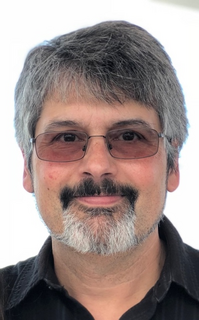How the Social Network of Knowledge Leads to Scientific Truth

Science, as practiced since the Renaissance, can lead to true outcomes, as measured by the astounding growth in technology and prosperity since that time. How can this be, and why did it start at that time? For many centuries, this question has been explored by philosophers and historians. This talk will cover some of this history, and address puzzles such as:
- No one person knows the truth, yet truth nevertheless emerges from scientific inquiry.
- Philosophers cannot even cleanly define the concept of “truth”, yet truth nevertheless emerges from scientific inquiry.
- In every field and sub-field of scientific knowledge and technology, complexity is ever growing, far beyond what any one person can comprehend, yet truth nevertheless emerges from scientific inquiry.
As one who uses empirical methods to pursue scientific inquiry, the speaker has found understanding some of this history to be helpful, especially when pondering the worth or meaning of conducting specific experiments.
1PDH will be awarded to the attendees
1 Colloquium Credit will be awarded to UNL SoC students
Date and Time
Location
Hosts
Registration
-
 Add Event to Calendar
Add Event to Calendar
Loading virtual attendance info...
Speakers
 Dr. J. Edward Swan II
Dr. J. Edward Swan II
Dr. J. Edward Swan II is a Professor of Computer Science and Engineering at Mississippi State University. He holds a B.S. (1989) degree in computer science from Auburn University and M.S. (1992) and Ph.D. (1997) degrees in computer science from Ohio State University, where he studied computer graphics and human-computer interaction. Before joining Mississippi State University in 2004, he spent seven years as a scientist at the Naval Research Laboratory in Washington, D.C. Dr. Swan’s research has centered on the topics of augmented and virtual reality, perception, data science, empirical methods, human-computer interaction, human factors, and visualization. Currently, he is studying the perception and technology required to give virtual objects definite spatial locations, including depth and layout perception and depth presentation methods. He is also studying efficient data science tools, and collaborating with social scientists to analyze social media data. His research has been funded by the National Science Foundation, the Department of Defense, the National Aeronautics and Space Administration, the Naval Research Laboratory, and the Office of Naval Research. Dr. Swan is a member of ACM, IEEE, and the IEEE Computer Society. He has served many roles in the technical communities of IEEE Virtual Reality (VR), IEEE International Symposium on Mixed and Augmented Reality (ISMAR), and IEEE Visualization. He is currently the chair of the IEEE VR steering committee. Previously, he served as one of the general chairs of VR 2021 and VR 2020, as well as a program chair for ISMAR 2017, ISMAR 2016, VR 2015, and VR 2014. He is also a member of the ISMAR steering committee. In 2017 and 2018, he served as Interim Department Head of Computer Science and Engineering at Mississippi State University.

